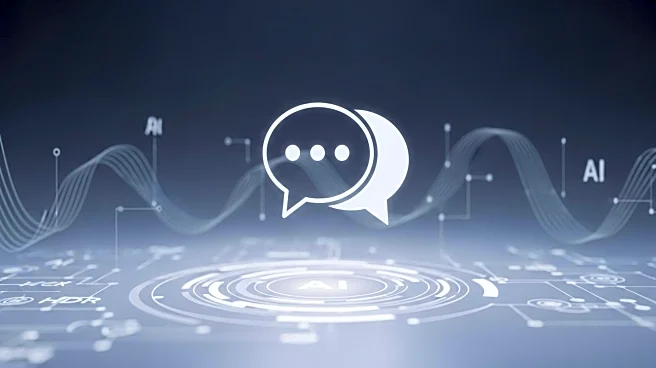What's Happening?
ChatGPT, an AI chatbot developed by OpenAI, has become widely used for both personal and professional tasks. Users can employ ChatGPT for information retrieval, content creation, coding, and language translation. The chatbot operates based on a large language model, which predicts responses using past data. Users are advised to provide detailed prompts for more accurate results and to avoid sharing sensitive information due to potential data breaches. The platform is accessible via its website or mobile app, offering features like voice input and file attachments. Users can choose between free and premium memberships, with the latter providing enhanced capabilities.
Why It's Important?
The widespread adoption of ChatGPT signifies a shift in how individuals and businesses approach information gathering and task management. By offering a versatile tool for various applications, ChatGPT can streamline workflows and enhance productivity. However, users must remain cautious of the chatbot's limitations, such as potential errors and biases. The integration of AI into everyday tasks underscores the growing importance of digital literacy and the need for critical evaluation of AI-generated content.
Beyond the Headlines
The ethical implications of AI usage, particularly concerning data privacy and the accuracy of information, are critical considerations for users. As AI tools become more prevalent, establishing robust governance frameworks to address these concerns will be essential. Additionally, the role of AI in shaping communication and decision-making processes may lead to broader societal changes, influencing how individuals interact with technology and each other.









